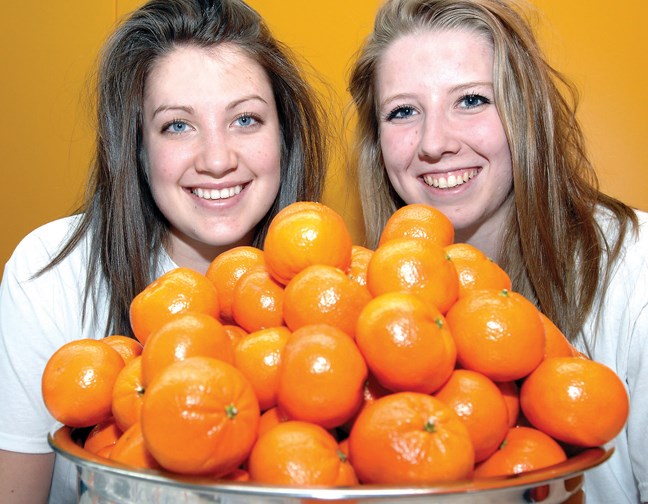Duchess Park secondary students are hoping to reclaim their tan-free title.
Last year, the school's grads took the top spot in the Canadian Cancer Society's Tanning Is Out initiative, getting all but one student to sign a pledge to embrace their natural skin tone for their graduation, prom and summer vacation.
But for project organizers Morgan Swan and Dallas Tobin, the initiative isn't simply about reclaiming their title.
"Skin cancer is the most common in Canadians our age and it's also the most preventable," said Tobin. "So we think that through the Tanning is Out challenge, it's definitely going to help teenagers get it into their minds that you don't need to be tanned to be beautiful."
Duchess Park is one of eight schools in the northern region taking part in this year's challenge, now in its third year. Joining the Condors are students from Prince George and Kelly Road secondary school in Prince George, Smithers secondary, Caledonia secondary school in Terrace, Williams Lake secondary school, Nechako Valley secondary school in Vanderhoof and Bert Bowes middle school in Fort St. John.
The school that gets the largest percentage of their student body to sign the pledge during a two-week period receives a donation for their dry grad from the cancer society .
This is the first year the initiative is open to students Grades 8 through 11 as well.
"The success of the Tan-Free Grad Challenge over the past two years and the awareness of the dangers of tanning that this campaign has brought to high school youth led to this expanded opportunity," said Megan Klitch, health promotion co-ordinator with the B.C. and Yukon branch of the Canadian Cancer Society.
Since 2011, more than 8,000 Grade 12 students have committed to a tan-free graduation.
It's also the first year the challenge has been issued following the passing of provincial legislation banning young people under the age of 18 from using indoor tanning equipment.
That ban has brought the issue of tanning and the damage it can cause to the forefront for more people, Tobin said.
"People could go in with their parents or a note and it didn't really seem like a big deal. All the time, girls were coming in to our school and they were unnaturally tanned," said Tobin, who noted she didn't have a preference for tanning herself, but didn't see a problem with people who did. "But now I think it's a bigger deal and people are trying to find out about it."
One of the extra perks to the initiative is the ability to offer alternatives to going out in the sun uncovered or using other artificial means to darken one's skin, said Swan.
"Obviously we're not going to get people to stop tanning, but we can give them the facts," she said, as someone who didn't frequent tanning salons, but liked the idea of having a tan she got from playing sports outside.
The Duchess Park students said they had signed up half of their class after almost a week into the challenge and had a variety of incentives and prizes lined up to encourage more commitment as well as ways to raise money for the cancer research organization at the same time.
"If we do win, we want to be able to give back a little," Tobin said.


